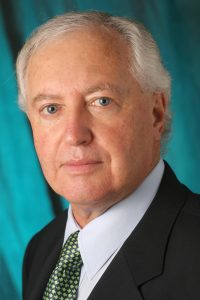
Associate Professor David Champion AM
Sydney rheumatologist Associate Professor David Champion has been awarded a Member (AM) in the General Division of the Order of Australia in the Queen’s Birthday Honours list.
The honour recognises his significant service to medicine in the field of paediatric rheumatology, and to medical research and treatment of musculoskeletal pain.
Associate Professor Champion was founding director of the Pain Research Unit at the Sydney Children’s Hospital and a co-author of the seminal 1990 paper describing the Faces Pain Scale.
The paper has been one of the most cited papers in paediatric pain and the Faces Pain Scale, together with its shortened derivative (FPS-R), an international standard in the measurement of pain in children.
Associate Professor Champion’s research interests have ranged broadly from growing pains, pain response to immunisations and post-operative pain in children to work and injury related pain in adults.
A common theme underpinning his clinical practice and research has been a biopsychosocial approach to pain.
He told the limbic this approach was not always fully appreciated by some of his peers especially during the 1980s epidemic of repetitive strain injury (RSI).
“We observed exactly the same condition in office workers from the various departments in Canberra and immigrant process workers in factories. We said it has to be real, which ran counter to the prevailing views.”
He said the strictly biomedical paradigm remains inadequate to explain and manage many pain conditions.
In semi-retirement now, Associate Professor Champion is still involved in paediatric pain research on a continuing honorary basis and medicolegal practice mainly related to motor vehicle injuries.
He said insurers and their doctors who rely on a narrow biomedical focus assume that a person should be fit for work as soon as their fractures heal.
“What I and my students have shown is that to understand such important outcomes as long-term inability to work, you have to use the biopsychosocial model.”
He said pain education had to be more fully incorporated into the medical curricula so all medical practitioners know how to understand and assess pain.
“Along with that, it is quite clear medical practitioners need to be able to better assess psychological problems.”
Associate Professor is currently involved in research on the relationship between growing pains in children and restless leg syndrome in adults.